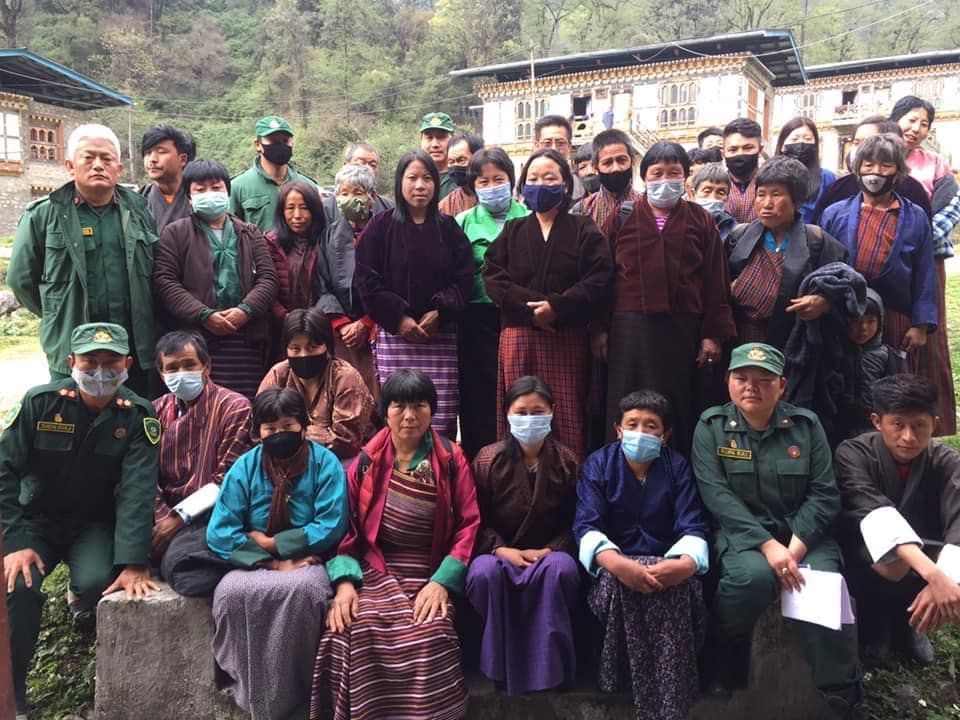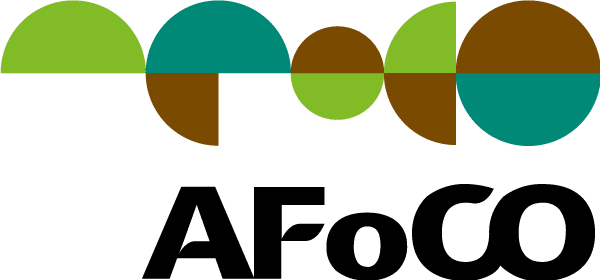This is the first year of implementation of the project ‘Sustainable Community-Based Enterprises for Improved Livelihood in Bhutan (AFoCO/017/2020)‘. The project was launched in July 2020 as part of a collaboration between Bhutan and AFoCO, making it the first AFoCO project on community-based livelihood enhancement in Bhutan. The article focuses on the project activities implemented in the District of Gasa.
Background
For any forest conservation activity to be successful, securing the livelihoods of forest-dependent communities has become more important than ever. Taking people’s livelihood in the center stage of forest conservation and governance has always paid off in maintaining the integrity of the forest and ensuring the sustained supply of ecosystem services. Rural communities in particular are directly dependent on the forest for food, shelter, and livelihood.
Bhutan, with its pristine forest and rich forest cover, is known for being one of the few carbon-negative countries in the world. Nature has always been an integral part of people’s livelihood, culture, beliefs, and folklore in Bhutan. Acknowledging the high dependency of communities on limited natural resources, Bhutan has long focused on people’s participation in forest governance and management in order to aid the government’s efforts in maintaining forest cover in at least 60% of the total land of the country, as mandated by the Constitution. Incentivizing the local communities through the development of community-based enterprises is one of the ways to involve the forest-dependent communities in forest protection and conservation. Such activities can effectively engage people in conservation as well as inculcate them with a sense of ownership to protect the services that the forest provides.
Supporting community-based enterprises
With the support of AFoCO, Bhutan is implementing a project titled “Sustainable Community-Based Enterprises for Improved Livelihood in Bhutan” to strengthen the livelihoods of rural people through the establishment of small and medium-scale rural enterprises while encouraging them to manage forest resources sustainably. Through this project, two community-based Menchus (mineral water springs) were established in two different Community Forests under Bhutan’s northern District of Gasa. Mineral spring water, locally known as Menchu, is traditionally believed to possess therapeutic characteristics due to the high mineral content dissolved in it. It is one of the ancient traditional healing practices and is still popular amongst many Bhutanese. These facilities are used by visitors from all parts of Bhutan and are under operation throughout the year. This therapeutic healing practice has also gained popularity among many tourists to Bhutan.
The Menchu water is collected in wooden bathtubs and warmed by heated stone/boulder. As a result of increased visitors to the facility, the quality of the water source and the conditions of surrounding forest areas have deteriorated over the years. This has led to a reduced flow of mineral spring water from the source. For sustainability of the spring water, the two Menchus were bought under the PES (Payment of Ecosystem Services) scheme where Community Forest Management Groups (CFMGs) are incentivized for managing and maintaining the natural spring water. As maintaining the health of the watershed is essential for the sustainable flow of spring water, this scheme directly contributed to conserving the forest through local participation.
Tobked Menchu is located on the way to Gasa Dzong before reaching the village called Remi in Khateod Gewog of Gasa District. The Menchu shares boundary with Tashithomoen Community Forest. The water of the Menchu is believed to heal migraines, tumors, and joint pains. The Menchu initially was located beside a simple guest house and basic amenities for the public but the facilities were no longer in a usable condition due to the lack of maintenance. Considering the environmental damage caused and the need for a proper management system, the project was initiated with support from AFoCO. The AFoCO Project with the Social Forestry & Extension Division (SFED) of the Department of Forest and Park Services provided funds to procure materials, construct and maintain the structures.

Jagoey Menchu is located near the Rangzhing Kuenphen CF of Khateod Gewog in Gasa. To date, Menchu water is known for healing ulcers, stomach disorders, as well as other stomach ailments, thus attracting visitors from all parts of Bhutan. Before, there was a temporary shed with no proper facilities and management. This led to the shrinking of the spring and increased waste problems in the area. With support from AFoCO, the Menchu area was developed by installing permanent structures and introducing a proper management system.

Involving communities
Involving the local people through consultations was key in understanding issues and concerns related to the management of the facility. The identification of areas that need to be addressed was worked out through consultation meetings held among CFMGs, local government officials, and forestry officials. One of the main objectives of the meeting was to assess the capacity and willingness of the communities to manage the Menchu a well as the roles they can play, and develop management modalities to ensure that the natural spring water is sustainably managed through local participation.
As Tobked Menchu had some basic facilities in place, the project supported in maintaining, replacing, and developing the areas with a particular focus on waste management around the area. Wooden tubs were replaced with new ones, a water storage tank was installed, a boiler base foundation was built, and shelters were constructed. In the case of Jagoey Menchu, major construction work was carried out to establish permanent structures. Guest rooms with attached kitchens, toilets, water storage tanks, and wooden bathtubs were constructed/installed. These facilities are being maintained in a natural way, as traditionally as possible
Sustaining efforts
Building the capacities of local people in managing the facilities, giving them a sense of ownership, and creating an alternative source of income are a few of the intents of the project. After providing the local communities with adequate training and support, the management of the two Menchus was handed over to the CFMGs with written terms and conditions which are integrated as a Business Plan and Standard Operation Procedures (SOP) within the Community Forest Management Plan (CFMP). The basis of the SOP is the by-laws developed with respective CFMGs. The rights, responsibilities, fee structure, maintenance mechanism, and role of the manager form an important part of the SOP. The two communities also selected their manager for the term of one year and also decided on nominal fees to charge for the services provided.
The Menchu is a decade-old traditional practice unique to Bhutan and an example of people’s relationship with nature. The project will be a stepping stone for the conservation and sustainable utilization of natural spring water with monetary benefits to the communities. This will provide an opportunity to diversify the income source and enhance the livelihood of the communities. The outcomes of the project will contribute to the overall objective of AFoCO to improve the resilience of local communities, forests, and landscapes.



Contributed by Sapana Sunar, 2021 AFoCO Fellowship Official from Bhutan

